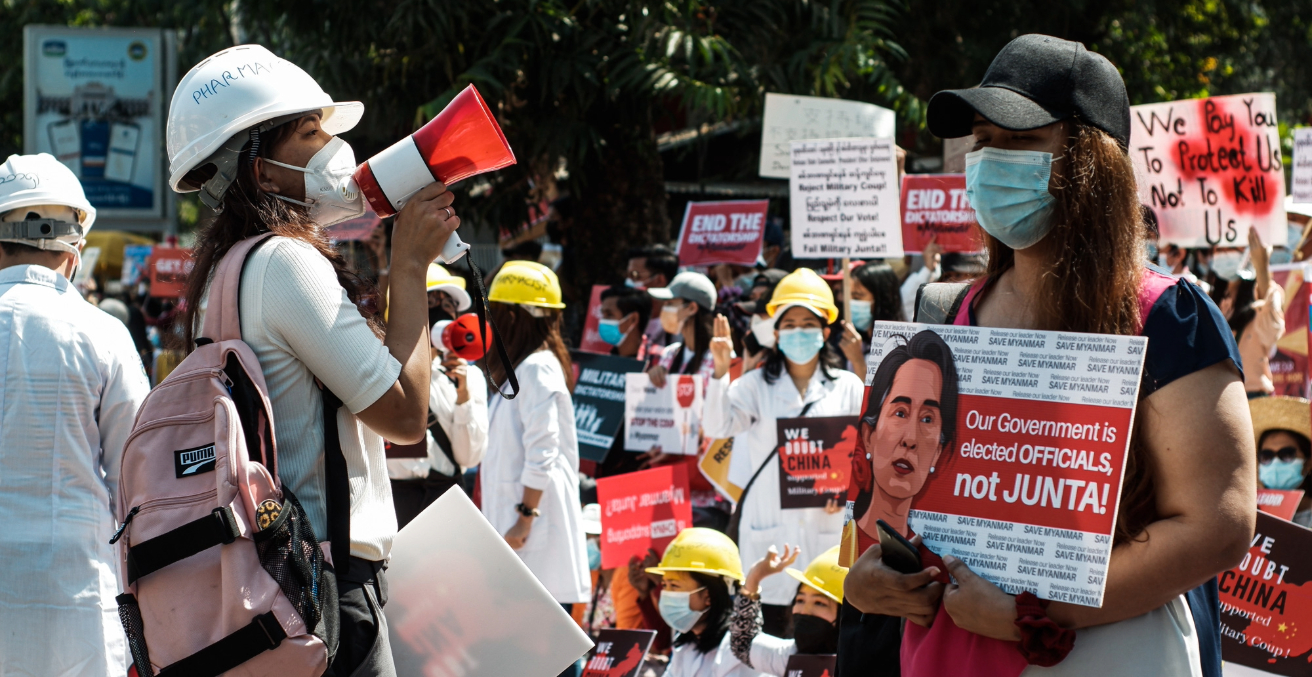India takes the Quad, and its role in it, very seriously. And yet, New Delhi’s position on Russia risks generating tensions within the group.
India’s muted reaction to Russia’s invasion of Ukraine has sparked confusion and consternation in many world capitals, especially in the West. In reality, New Delhi’s position is fully consistent with past policy. Indian governments have never condemned Russian aggressions. This is because of its heavy reliance on Russian arms; a special relationship with Moscow that extends back to the early years of the Cold War; and an unwillingness to take sides internationally in order to maximise flexibility and independence in its foreign policy — the essence of its cherished strategic autonomy principle.
This position, however, presents a major diplomatic challenge for India — a country keen to step up its role on the world stage and participate actively in impactful global groupings that help advance Indian interests. One of these groupings is the Quad, an entity meant to counter Chinese power in the Indo-Pacific. The Quad has become increasingly active in recent years as all four of its members — India, America, Australia, and Japan — have seen their relations with Beijing plunge to their lowest levels in decades. India takes the Quad, and its role in it, very seriously. And yet, New Delhi’s position on Russia risks generating tensions within the group.
At first blush, such an assertion may appear questionable. The Quad is about countering China, not Russia. It’s not a security alliance meant to push back against any form of aggression. Its priority areas are public health, emerging technologies, and climate change. Its main signature project to this point is a COVID-19 vaccine production program. In the words of Ashley Townshend, an expert on the Indo-Pacific at the University of Sydney, “The Quad is not about democracy promotion or pushing back against authoritarians the world over. It’s about maintaining regional order and providing practical, public goods in the Indo-Pacific.”
This may be true. But it’s becoming increasingly clear that the Russia factor, and India’s position on the war in Ukraine, can no longer be ignored within the Quad for three key reasons. There is now a sharp disparity in views between India and the other three members, some Quad members believe that the war in Ukraine impacts the Indo Pacific, and the dynamics of Russia’s relations with China are changing.
America, Australia, and Japan have taken some of the most strident and maximalist positions toward the Russian invasion. They have been especially critical of Russia, and they have slapped some of the harshest sanctions on Moscow. With India’s Quad partners leading the charge against Russia, New Delhi’s much more subdued position stands out. Additionally, the other Quad countries, along with many European nations taking strong stands against Russia, have invoked themes of democracy to justify their positions. They have argued that the world’s democracies must act together to curb Russia’s assault on its democratic neighbor.
Democracy is a major theme within the Quad as well. Joint statements from the group often emphasise its support for “democratic values” and “democratic resilience.” Quad leaders also refer to themselves as “four democracies.” In effect, the Quad self-identifies as a group of democracies, and three of its members are pushing hard for the world’s democracies to unite against Russia. This makes all the more awkward the fact that India continues to go in the very opposite direction, with its continued abstentions from UN resolutions on the Russian invasion, its refusal to condemn the invasion or criticize Russia at all, and its insistence on maintaining commercial relations with Moscow.
Additionally, Quad members are now directly linking the Russian invasion of Ukraine to the Indo-Pacific. After a virtual Quad leaders meeting last month, Japanese Prime Minister Kishida Fumio released a statement warning that “unilateral changes to the status quo by force or coercion like the recent Russian aggression against Ukraine are also unacceptable in the Indo Pacific region. It is critically important for us to bring about a free and open Indo-Pacific.” Such a comment is actually in line with previous Quad statements. In March 2021, a Quad joint statement said that “we commit to promoting a free, open rules-based order, rooted in international law to advance security and prosperity and counter threats to both in the Indo Pacific and beyond [emphasis added].” That rules-based order, according to that same statement, includes the principal of territorial integrity. The implication here is that when the principles upheld by the Quad in the Indo-Pacific are violated elsewhere, that matters for the Quad as well.
Finally, the war in Ukraine is drawing Russia closer to China. The two powers, united by their rivalry with Washington, had already been deepening partnership in the weeks leading up to the Russian invasion. They released a long joint statement laying out diverse areas of future cooperation following an early February meeting in Beijing between the Chinese and Russian presidents. In the coming weeks, Russia, sanctioned and globally isolated, will likely see China as its most powerful remaining friend. This could prompt it to ramp up its opposition to the Quad, which Russia’s foreign minister previously criticised as an “Asian NATO” — a term also used by Beijing. Additionally, Russia’s growing reliance on Chinese economic and possibly military aid will give Beijing leverage over Moscow. This could prompt China to press Russia to help it counter the Quad by deepening its footprint in Southeast Asia, a region where Moscow has already stepped up trade and security ties with several countries in recent years.
To be sure, India’s position on Russia won’t torpedo the Quad. The group’s raison d’etre — countering China — remains intact. The strength of India’s bilateral relations with the three other Quad countries — all rooted in broad-based cooperation in multiple spheres — will provide additional insulation that prevents deeper tensions within the Quad. But it would be naïve to assume the Quad can simply shrug off the India-Russia factor. This is because India’s views are so diametrically opposed to those of the other Quad members, other Quad members now link Russia’s invasion to the Indo-Pacific, and Moscow’s deepening ties with Beijing are bringing Russia into the broader strategic orbit of a group focused on countering China.
India’s fence-sitting on Russia is the elephant in the room for the Quad. If Russia continues and expands its war in Ukraine, and India still maintains its current position, it threatens to become an albatross around the Quad’s neck. Fortunately, the Quad, comprised of some of India’s closest partners, can offer a safe space for a discussion on how New Delhi can do its part to help end a horrible war. One option would be to propose that India pitch itself as a third-party mediator — a role in which its neutrality would be an asset, not a liability, and in which it could leverage its special relationship with Russia and cordial ties with Ukraine.
Convincing New Delhi to change its stance toward Russia isn’t a realistic goal. A better option is to invite it to serve as a mediator. And if it enjoys a degree of success, not only could this help deescalate a war, it could also preempt tensions within a Quad grouping that is critical to India’s interests.
Michael Kugelman is Asia Program deputy director and senior associate for South Asia at the Wilson Center in Washington, DC.
This article is published under a Creative Commons License and may be republished with attribution.




